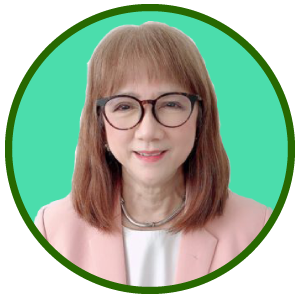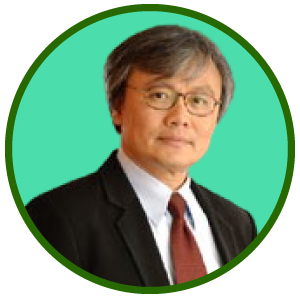Session 3: Spiritual Harmony: Integrating End-of-Life Planning and Spiritual Needs for the Elderly
As individuals approach the end of life, their spiritual needs often become more prominent. Many elderly people face the challenge of reconciling their spiritual beliefs with their end-of-life experiences, which can be a deeply personal and complex process. Navigating these needs requires a thoughtful approach that respects and addresses their spiritual dimensions, often amidst personal and family dynamics. This session will explore how individuals can support elderly loved ones in addressing their spiritual needs during end-of-life planning. We will discuss the challenges faced in balancing spiritual and practical aspects of end-of-life experiences, touching briefly on the role of palliative care in providing comfort and the importance of Living Wills in ensuring that medical decisions align with spiritual values. Additionally, we will examine strategies for providing meaningful spiritual support and explore the ethical considerations involved in respecting and facilitating end-of-life decisions that honor the spiritual beliefs and values of the elderly.Read More!
Discussion Questions:
- What are the main challenges individuals face in supporting elderly loved ones with their spiritual needs as they approach the end of life, and how can these challenges be addressed?
- How can family members and caregivers effectively balance the spiritual and practical aspects of end-of-life planning for the elderly?
- What ethical considerations should be taken into account when facilitating spiritual support and decision-making for elderly individuals at the end of life, and how can these considerations be managed sensitively?
- What are the implications of legal and medical guidelines on spiritual end-of-life practices, and should there be more flexibility in accommodating diverse spiritual beliefs?
- How can Living Wills be effectively integrated into end-of-life planning to ensure that both medical decisions and spiritual needs are respected?
- What role does palliative care play in addressing the spiritual and emotional needs of the elderly, and how can it be better coordinated with family and spiritual support systems?
- What role should government or insurance policies play in supporting or restricting access to spiritual end-of-life services, and how can these policies be aligned with respecting individual spiritual autonomy?
Moderator:

Mr. Akesrid Luxsitanonda,
Faculty of Political Science Ramkhamhaeng University
Speakers:

Important points:
- Cultural context of end-of-life in Thailand:
Thai culture places strong emphasis on family values and filial piety, often leading to families making decisions for elderly parents, sometimes resulting in a "conspiracy of silence" where the elderly don't have a chance to share in decision-making about their healthcare. While families may initially want aggressive treatment, they often prefer bringing parents home to die once they realize death is imminent, highlighting a paradox between intensive care and a desire for home death. - Perceptions of a "good death":
For older adults in Thailand, a good death is perceived as dying without suffering, naturally, and without worries, allowing time to prepare and finish unfinished business. It also involves dying among family members and in the family home. Studies show that the elderly want to know the truth about their illness and participate in decision-making. Key elements of a good death for Thai Buddhist cancer patients include relief of suffering, preparation for death, being with family, and the place of death. - Importance of Advanced Care Planning (ACP) and Palliative Care:
Advanced Care Planning is crucial for exploring and communicating a patient's values, life goals, and care preferences for the future, helping to achieve a good death. Palliative care provides holistic and compassionate care, focusing on pain and symptom control, psychological and spiritual care, and facilitating open communication and shared decision-making at the end of life. Thailand has made significant progress in developing palliative care units in hospitals, which help with symptom control, ACP, and coordinating home care, supporting the preference for dying at home. - Benefits of palliative care and supporting monks:
Palliative care consultation significantly reduces aggressive treatments like intubation, mechanical ventilation, and CPR at the end of life. The Ministry of Public Health in Thailand has initiated "Kutichewabibhan" to provide care for monks who are seriously ill and at the end of life, allowing them to die at their temples with spiritual care, rather than in hospitals.
1. Assoc. Prof. Srivieng Pairojkul, MD,
Head of Karunrak Palliative Care Center, Srinagarind Hospital. Faculty of Medicine, Khon Kaen University

Important points:
- Religion as a coping mechanism:
Many individuals, especially older adults, turn to religious faith for comfort and to cope with stressful situations like loss, change, and the uncertainties of approaching end-of-life. Religious involvement can offer an alternative way of coping, reducing reliance on substances like alcohol or drugs. - Positive impact on mental and social health:
Research indicates a strong correlation between religious involvement and improved mental health, including less depression and faster recovery from depression in two-thirds of studies. It is also associated with greater peace, harmony, purpose, hope, and optimism, even among older adults nearing death. Furthermore, religious individuals often have larger social networks and more supportive family members. - Clinical applications for healthcare providers:
Healthcare providers should take a spiritual history for all patients, discuss spiritual beliefs and practices with older patients, and respect, value, and support these beliefs. This patient-centered approach is crucial for helping individuals cope and achieve peace and harmony at the end of their lives. Even if not directly providing spiritual care, healthcare professionals can listen to patients about how their beliefs help them cope. - Resources for spiritual health:
Duke University's Center for Spirituality, Theology, and Health offers various free resources, including a website, e-newsletter, and workshops, to provide updates on the latest research and discussions on spirituality and health across all age groups, including older adults. They also address specific topics like moral injury, which is relevant for older adults facing end-of-life issues such as guilt and shame.
2. Prof. Harold G. Koenig, M.D., M.H.Sc,
Director of Center for Spirituality, Theology and Health, Professor of Psychiatry and Behavioral Sciences and Associate Professor of Medicine at Duke University Medical Center, the US

Important points:
- Home as the ideal place for end-of-life care:
Professor argues that home is the best place for care because it is where spirituality truly resides for the elderly, unlike hospitals. He uses the example of Queen Elizabeth II, who died peacefully at home as planned, despite having access to extensive medical facilities, to illustrate the preference for a dignified death outside of a hospital setting. - Problems with hospital-based end-of-life care:
Hospitals often prolong life without considering the outcome, leading to unwanted interventions like intubation and feeding tubes, even if survival is unlikely or results in a permanent unconscious state. This can result in patients dying in the hospital or surviving in an incapacitated state, which is often not what they desired. Going to the hospital for a sudden, serious illness often means consenting to potentially dying there and receiving aggressive treatments. - The critical role of "living wills":
To ensure wishes for a home death and avoidance of resuscitation are respected, a written "living will" is crucial in Thailand, as doctors can legally honor it even if family members request resuscitation. Without a living will, verbal instructions to family members may not be followed due to shock or differing opinions among relatives. - Benefits of home-based palliative care services:
Services like "Yuan Yen" facilitate home care, ensuring patients' values regarding life and death are respected, and allow for peaceful, natural deaths at home, often with the support of family for spiritual care. This approach not only provides better quality of life and dignity but also significantly reduces healthcare costs by avoiding hospital admissions at the end of life.
3. Prof. Issarang Nuchprayoon, MD PhD,
Professor of Pediatrics at Faculty of Medicine, Chulalongkorn University

Important points:
- "Baojai notebook" for Advanced Care Planning (ACP):
The "Baojai notebook" is a user-friendly Thai guide designed to help individuals prepare for end-of-life care. Its components include personal information, perspectives on illness and death, important things to do before dying, and personal values. It also provides information on palliative care, life-sustaining treatments, and allows for the designation of a healthcare proxy. Crucially, it facilitates communication preferences regarding diagnosis and prognosis and details wishes for funeral arrangements. - Buddhist practice and spiritual well-being:
Research conducted on terminal patients in home-based and faith-based organizations found a direct correlation between increased Buddhist practice and higher spiritual well-being. This highlights the importance of incorporating spiritual practices into end-of-life care, particularly within the Thai Buddhist context. - Challenges in supporting spiritual needs and solutions:
Key challenges include the difficulty of initiating conversations about spirituality and death, and a lack of understanding or awareness about advanced care planning. Strategies to address these challenges include creating safe and open spaces for discussion, educating the public, and raising awareness. Limited access to spiritual resources can be mitigated by facilitating access to spiritual leaders, potentially through technology like video calls. - Community-based palliative care initiatives:
In response to health policies aimed at establishing hospices, initiatives are being developed to train village health volunteers in palliative care and end-of-life care for community members. These teams visit patients at home and monks in temples who are in terminal stages of illness, providing continuous support and revisiting them regularly.
4. Assoc. Prof. Dr. Suchira Chaiviboontham,
Division of Adult and Gerontological Nursing Ramathibodi School of Nursing, Faculty of Medicine Ramathibodi Hospital Mahidol University

Important points:
- Addressing end-of-life anxiety:
Anxiety at the end of life often stems from fear of the unknown (death), despair in life (lack of purpose), and doubt about an afterlife. Dr. Vuthiphong emphasizes a personal perspective where these fears are absent due to a specific spiritual worldview. - Death as a change of residence:
A key spiritual perspective is viewing death not as an end, but as a "change of residence"—moving from an old house to a new one. This analogy suggests preparation involves clearing belongings (spiritual house cleaning, settling unfinished business), expressing feelings to loved ones, and saying farewell to "neighbors" (those with whom one has unsettled issues). - Understanding life, death, and spiritual progression:
Life is conceptualized as the coming together of matter, energy, and spirit. Death is when these components separate. Dharmic religions suggest an afterlife where the spirit (or "yellow" in his analogy) seeks new matter and energy, leading to rebirth. The ultimate goal is spiritual enlightenment (Nirvana, Moka, Dao, cosmic consciousness), where the spirit no longer desires to combine with matter and energy, achieving pure and pristine independence. Spiritual progression is presented as an evolution through five levels: biological, emotional, intellectual, moral, and spiritual (wisdom). - Compassion as the root of morality:
Three ways to achieve spiritual progression are faith (monotheistic religions), wisdom (eastern religions), and morality (common ground). Universal morality, initially four basic precepts (no killing, no adultery, no stealing, no lying), can be collapsed into one core principle: "Ahimsa" or "do not cause harm and suffering to others". This ultimately boils down to compassion (Metta in Buddhism), which is presented as the foundation for a better end-of-life experience and a better world.
5. Dr. Vuthiphong Priebjrivat,
President of the Sahasswat Institute
